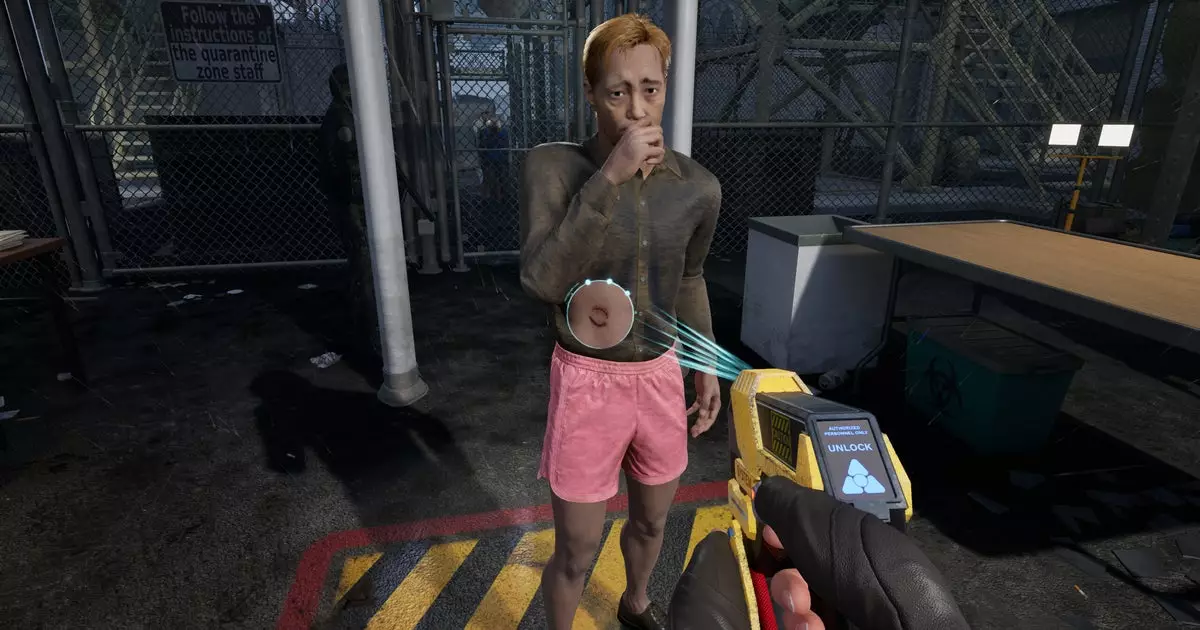In an era where society is increasingly interconnected yet fraught with uncertainty, games that challenge our moral compass have gained remarkable significance. Quarantine Zone: The Last Check exemplifies this trend by placing players in a high-stakes role: a border inspector tasked with segregating potential zombie vectors from innocent civilians. This setup pushes players into a morally ambiguous space where quick, often life-altering decisions must be made under immense pressure. It compels us to reflect on how we navigate complex moral decisions when the stakes are life or death, demonstrating that the value of human life isn’t always clear-cut. The game’s mechanics, which involve detailed inspection processes and resource constraints, echo real-life dilemmas faced at borders and checkpoints worldwide, albeit in an exaggerated, apocalyptic context.
The Power and Peril of Judgment in a Chaotic World
What stands out most in Quarantine Zone is its focus on decision-making that blurs the line between right and wrong. When faced with a queue of uncertain refugees—some innocent, others potentially infected—the player must identify subtle clues, interpret medical data, and even assess behavioral cues. Every choice carries weight: allow someone through and risk unleashing chaos, or quarantine and potentially condemn an innocent person. This mirrors the real-world tensions at border crossings, where officials often grapple with limited information, resource constraints, and moral discomfort. The game’s intense scenario design reminds us that moral clarity isn’t always achievable, especially in crises when distrust and fear are amplified.
Resource Scarcity and Its Ethical Implications
A compelling element of Quarantine Zone is its emphasis on resource management. Limited supplies of testing kits, surveillance equipment, and defensive tools mean players must prioritize and strategize carefully. In such environments, toughness alone isn’t enough; moral prioritization becomes crucial. Do you quarantine more people, risking overwhelming your capacity, or focus on fewer, more likely infected individuals? The game’s core mechanics serve as a metaphor for the scarcity often faced in real emergencies—be it in health crises, refugee management, or military conflicts—and the ethical conundrums these resource limitations impose. It provokes reflection: do we value individual rights over collective safety, or vice versa? And is there truly a “right” decision, or merely a set of less-bad options?
The Spectacle of Chaos and Humanity’s Resilience
Beyond its tactical gameplay, Quarantine Zone explores the chaos of survival—defending against hordes of zombies—juxtaposed with the granular human interactions at the checkpoint. This contrast enriches its narrative and underscores humanity’s resilience amidst disaster. The game’s portrayal of the line between humanity and monstrosity forces players to confront uncomfortable questions: What makes us human? Is it empathy, moral judgment, or mere biological identity? The game challenges players to maintain their humanity in morally impossible situations, illustrating that resilience isn’t just about physical endurance but also about moral steadfastness. The threat of the zombies serves as an external chaos, but the internal chaos of ethical dilemmas often proves to be the more profound challenge.
Satire and Commentary within the Apocalypse
Interestingly, the game’s tone hints at satire, subtly criticizing bureaucratic absurdities and the often illogical nature of real-world security protocols. This humor surfaces notably in the whimsical idea of differentiating Buster Keaton from Barney the Dinosaur at checkpoints—a playful exaggeration that underscores the ridiculousness sometimes inherent in strict protocol enforcement. While on the surface, it’s just humor, beneath that lies an insightful commentary on how superficial judgments and arbitrary categories often govern interactions in tense environments. Such satire invites players not only to reflect on the mechanics but also to question the deeper societal and political systems that influence decisions in real crises.
The Future of Ethical Play in Gaming
Ultimately, Quarantine Zone challenges us to think critically about morality in high-pressure environments, urging us to consider how judgments are formed and the consequences they carry. As gaming continues to evolve as a form of storytelling and societal reflection, titles like this elevate the conversation by making players experience morally charged scenarios firsthand. They compel us to recognize that in the chaos, our capacity for empathy, moral clarity, and resilience may be tested to their limits. Whether through satire, strategy, or moral dilemmas, such games serve as mirrors of our society and catalysts for personal introspection—reminding us that every decision leaves an imprint on the fabric of our shared humanity.

